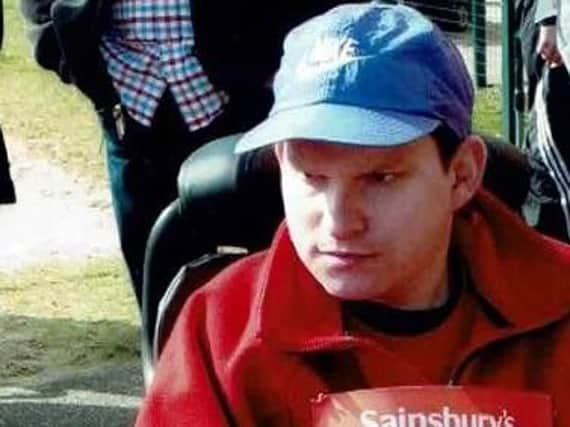Epilepsy drug U-turn joy for Wigan family


Linda and Phil Gavin were devastated last summer after everolimus, used in the treatment of people with Tuberous Sclerosis Complex (TSC), was turned down by NHS England over concerns about its cost.
It had greatly helped the Appley Bridge couple’s 39-year-old son Stephen, who was receiving the medication on a trial basis at York Hospital. The pilot saw the number of Stephen’s daily seizures drop by half, and their severity was also reduced.
Advertisement
Hide AdAdvertisement
Hide AdBut his health was left hanging in the balance once more following the decision not to fund everolimus – despite its being approved by NHS Scotland.
And Stephen’s parents feared his severe convulsions would “come back with a vengeance” if he was denied further access to the treatment.
But following a dramatic reversal by England’s health service, everolimus will be funded from April 2019 for Stephen and many others who live with TSC-related epilepsy, where the condition has not responded to standard medicines.
Dad Phil has been campaigning with wife Linda on this issue alongside the Tuberous Sclerosis Association (TSA), the only UK charity which supports people affected by the condition.
Advertisement
Hide AdAdvertisement
Hide AdFollowing the funding announcement, he said: “This positive decision by NHS England has got to be the best present for our son!”
Linda said: “Our son will benefit from the only drug therapy that has helped his refractory epilepsy by significantly reducing the number and severity of his daily seizures. Since starting this drug he has shown a considerable improvement in his general awareness and cognitive function.”
TSC is a rare genetic condition affecting one in 6,000 people that can lead to growths in various organs of the body. These growths may be referred to as benign and non-cancerous tumours, with problems from the growths being caused mainly because of their size and where they are in the body.
The organs most commonly affected by the growths are the brain, eyes, heart, kidney, skin and lungs.
Advertisement
Hide AdAdvertisement
Hide AdTSA chief executive Louise Fish said: “Around 70 people in England are currently prescribed everolimus for TSC-related kidney and brain tumours. NHS England estimates that a further 300 people in England will benefit from treatment with everolimus for TSC-related refractory epilepsy.
“We’re delighted that NHS England has decided to fund this life-changing and potentially life-saving treatment from April 2019 onwards.
“We’ll be working with TSC clinics across England to help them get ready to prescribe this drug to more people who can benefit from it.”